In today's rapidly evolving media landscape, the ethical considerations surrounding journalism and content creation have never been more critical. With the rise of misinformation and the quest for truth, engaging in a thoughtful discussion about media ethics is essential for both professionals and consumers alike. We aim to explore various perspectives on these pressing issues, fostering a collaborative environment where ideas can thrive. Join us as we delve deeper into this important conversationâyour insights and contributions are welcome!
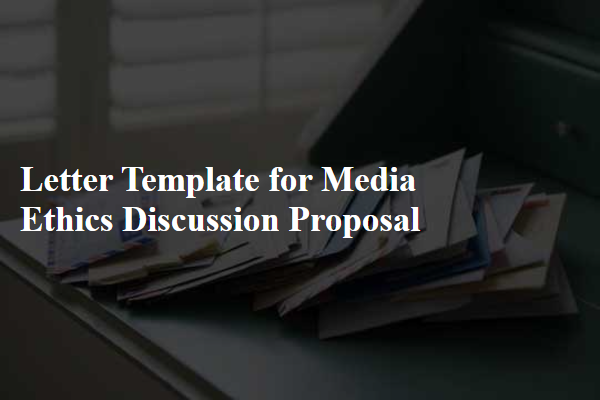
Clear Purpose and Goals
A media ethics discussion proposal aims to critically analyze the ethical responsibilities of journalists, media organizations, and content creators in today's digital landscape. The purpose centers on fostering an understanding of ethical decision-making processes, emphasizing accountability (the responsibility media professionals have to provide accurate information) and transparency (open communication about potential biases). Goals include engaging participants in case studies involving misleading headlines or sensationalism, exploring the impact of social media algorithms on news dissemination, and debating the balance between freedom of speech and harmful content regulation. The proposal targets media students, professionals, and enthusiasts, aiming to cultivate an informed, ethical media landscape through collaborative discussions and reflections on contemporary issues in journalism ethics.
Identification of Stakeholders
Stakeholders in media ethics discussions encompass a diverse range of entities that influence and are impacted by media practices. Journalists (reporters, editors) play a crucial role in upholding ethical standards in news reporting. Media organizations (broadcasting companies, digital platforms) create policies that guide ethical considerations in content creation. Regulators (government agencies, international bodies) establish legal frameworks that ensure accountability and transparency in media operations. Audiences (readers, viewers, listeners) represent the public's expectations for fair, balanced, and truthful reporting, shaping the media's ethical responsibilities. Academic institutions (universities, research organizations) contribute to the discourse through research and education on media ethics, while NGOs (non-governmental organizations focused on media accountability) advocate for ethical practices and represent marginalized voices in media narratives.
Relevant Case Studies and Examples
Media ethics plays a crucial role in shaping public perception and trust in journalism and broadcasting. The 2016 election coverage in the United States, characterized by false information and sensationalism, raised significant concerns about ethical reporting standards. The Cambridge Analytica scandal, where personal data of millions of Facebook users was misused for political advertising, highlighted the ethical responsibilities of media platforms in safeguarding user integrity and transparency. Another pertinent example is the coverage of the COVID-19 pandemic, where news organizations faced the challenge of balancing accurate reporting with public safety, resulting in debates over responsible journalism practices. The portrayal of marginalized communities during these events further emphasizes the necessity for ethical considerations in representation and inclusivity within media narratives.
Proposed Discussion Format
The proposed discussion format for the media ethics session includes a structured panel format featuring experts from various backgrounds. Each panelist, including ethics scholars, media professionals, and legal analysts, will present their perspectives on current ethical dilemmas in media coverage, such as misinformation during critical events like elections or natural disasters. The session, slated for 90 minutes, will begin with a 30-minute presentation phase, where panelists will address topics like journalistic responsibility and the impact of social media on public perception. Following presentations, a 30-minute audience Q&A segment will encourage direct engagement, allowing participants to explore specific ethical scenarios. The final 30 minutes will involve a guided discussion, summarizing insights and formulating actionable guidelines for media practices moving forward, aimed at fostering integrity within the industry.
Defined Outcomes and Follow-Up Plan
In a media ethics discussion proposal, clearly defined outcomes play a crucial role in guiding the conversation towards actionable insights. Expected outcomes might include increased awareness of ethical dilemmas faced by journalists during high-profile events, such as the reporting of the 2020 U.S. Presidential Election. Participants should aim to develop a set of ethical guidelines that align with principles established by organizations like the Society of Professional Journalists, emphasizing accuracy, fairness, and accountability. A follow-up plan could involve scheduled workshops or webinars to further explore these guidelines in practical scenarios, with feedback mechanisms in place for ongoing refinement. Additionally, collaboration with local media outlets, such as the Pittsburgh Post-Gazette or WQED, may be encouraged to disseminate these outcomes through community engagement. Regular assessments and updates will ensure that discussions remain relevant and impactful in evolving media landscapes.
Letter Template For Media Ethics Discussion Proposal Samples
Letter template of a pitch for a media ethics curriculum development meeting
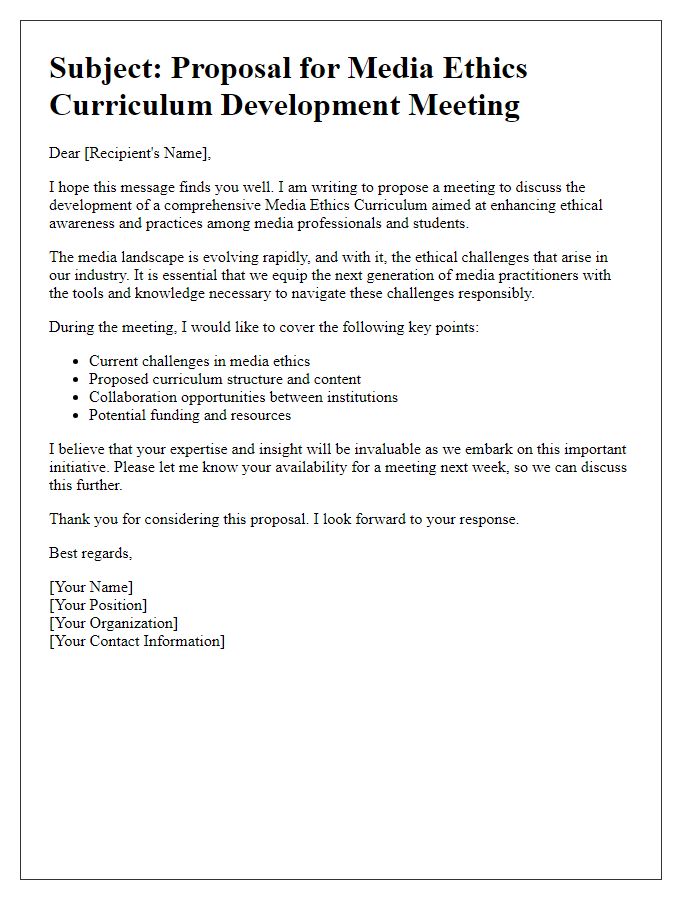

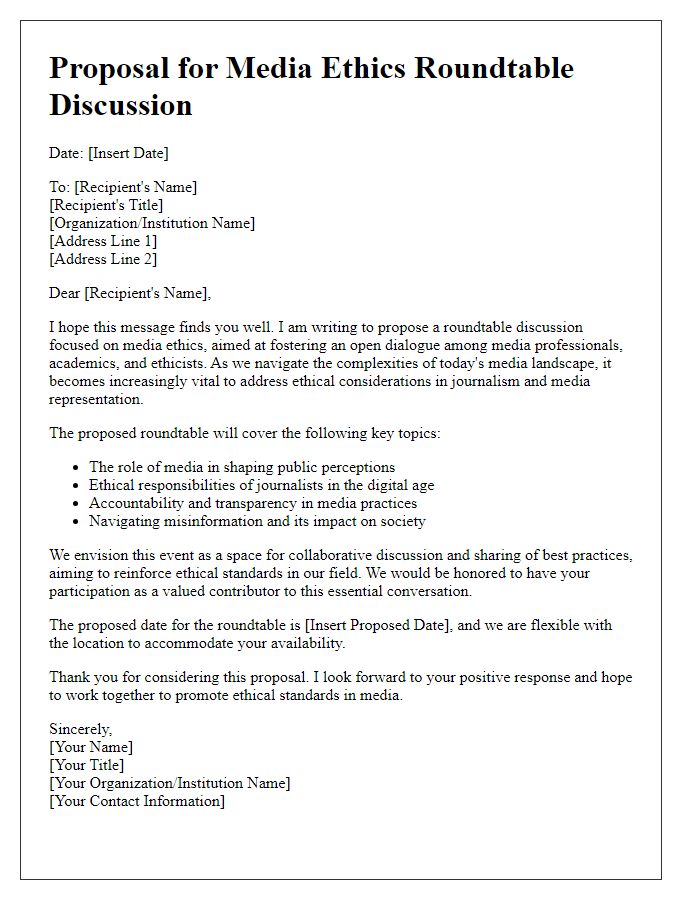
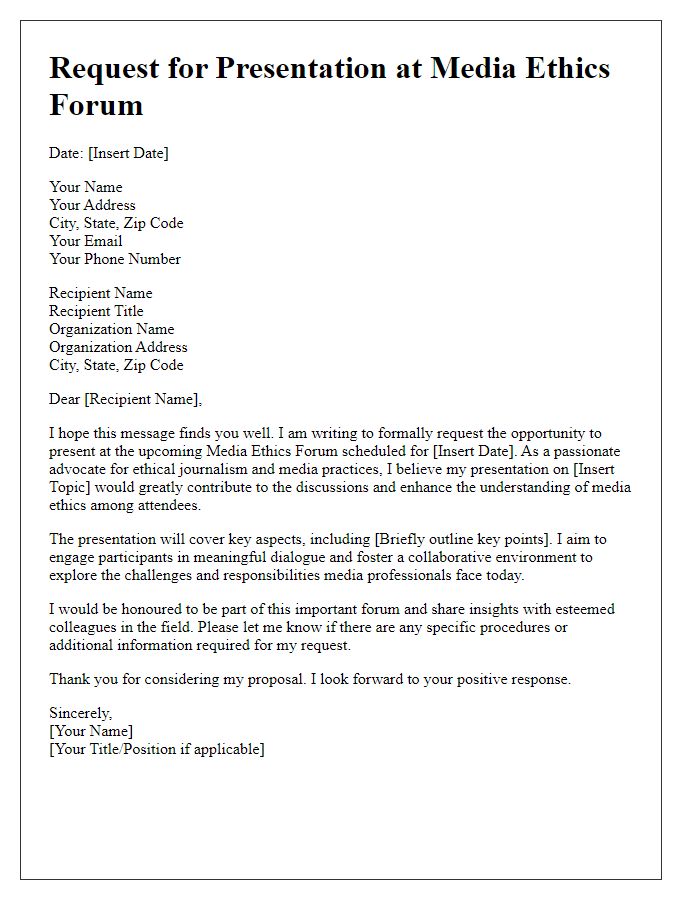
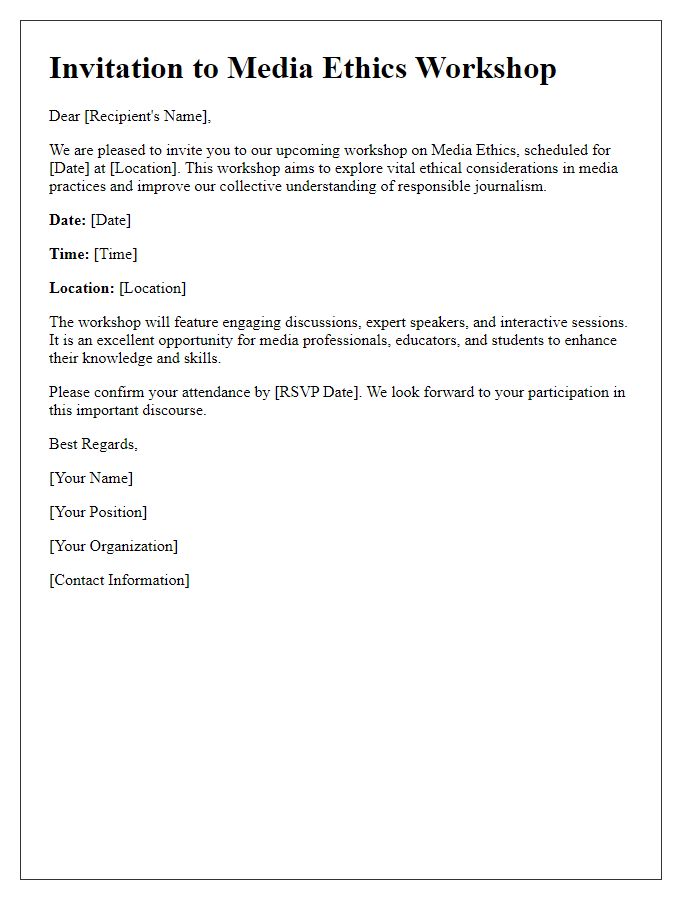
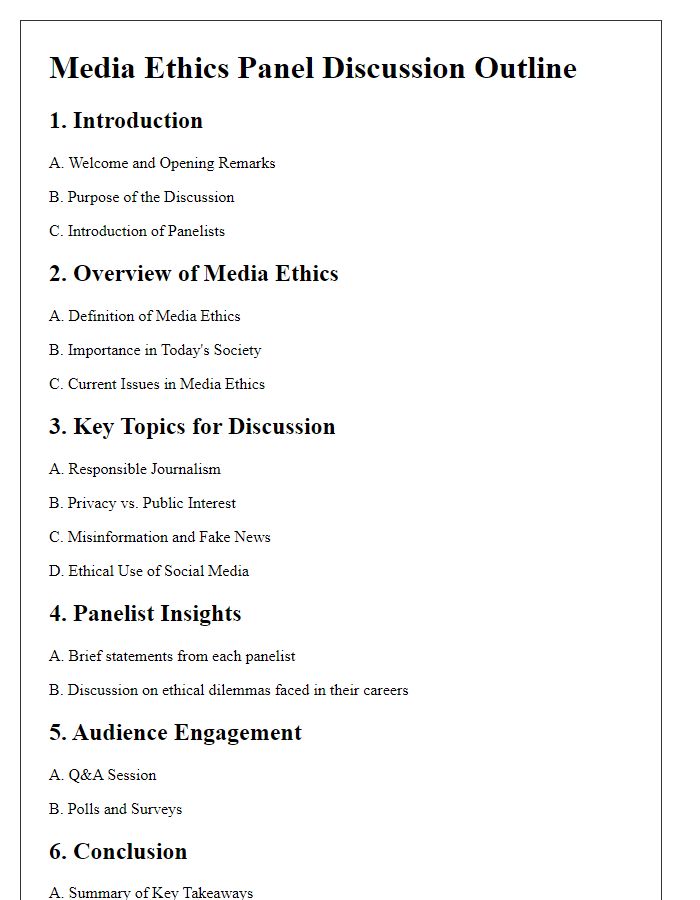
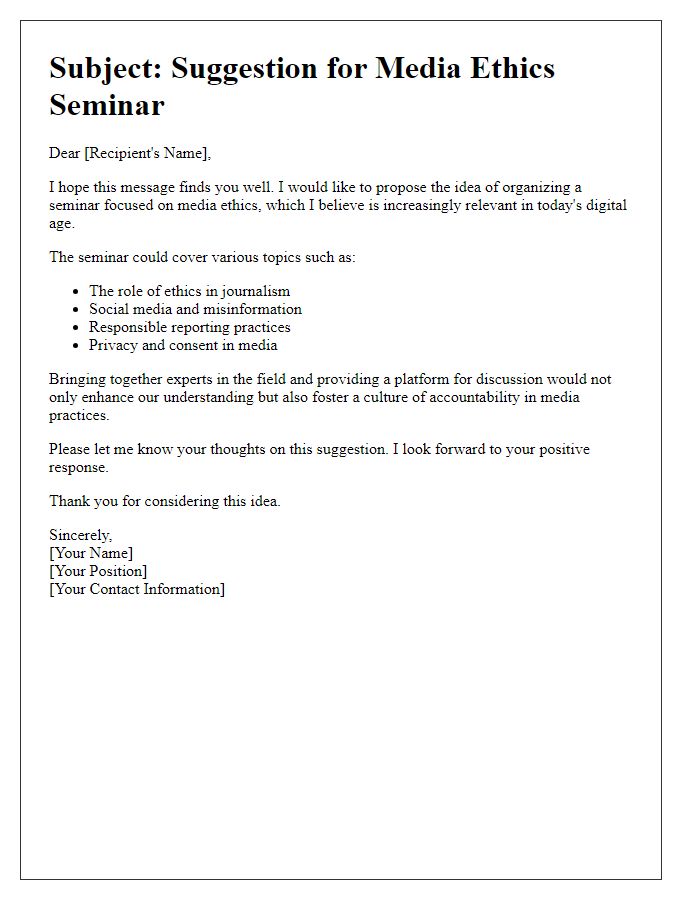
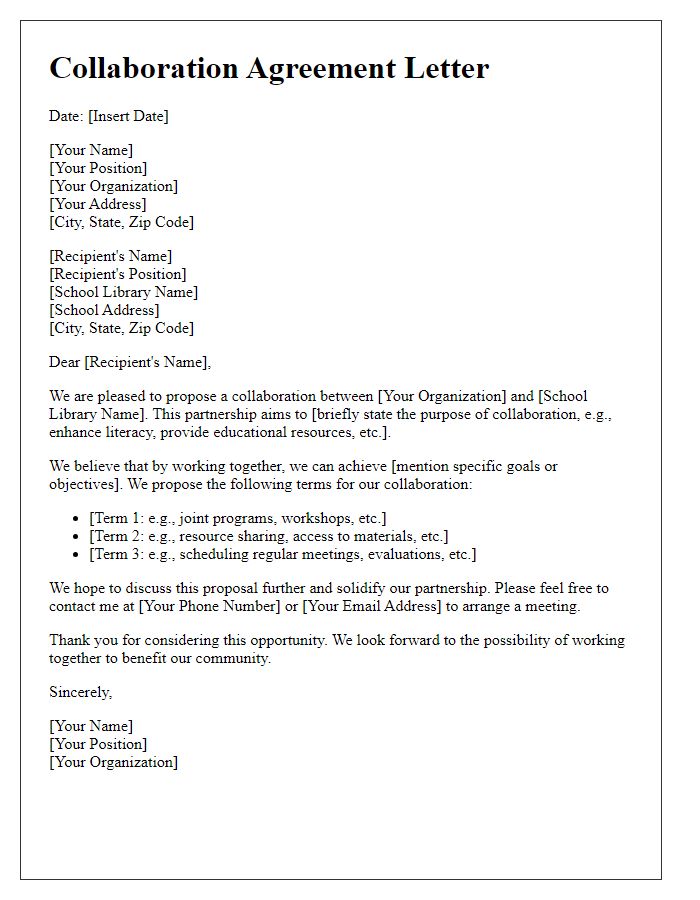
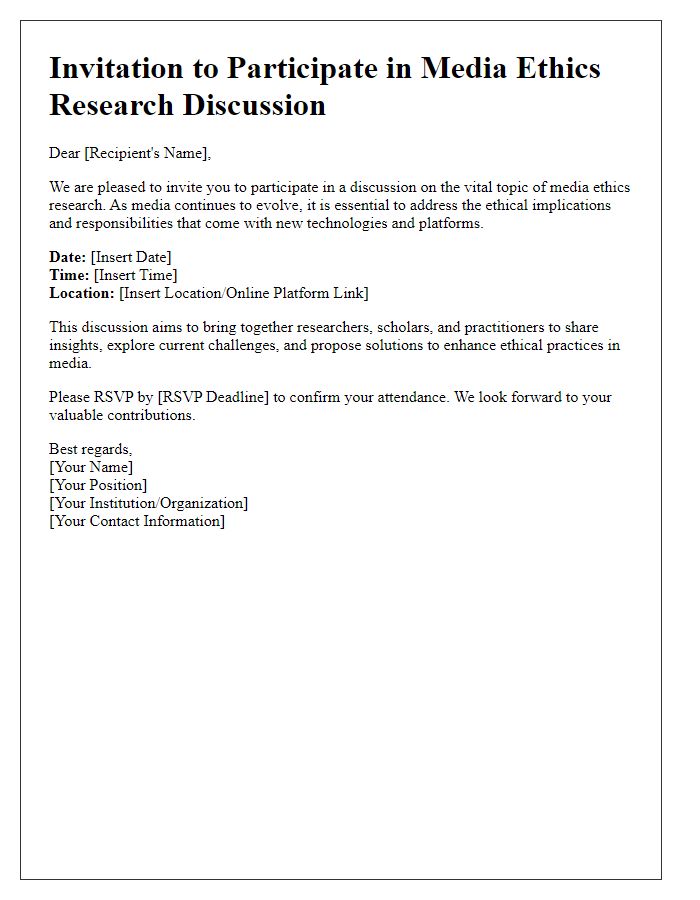
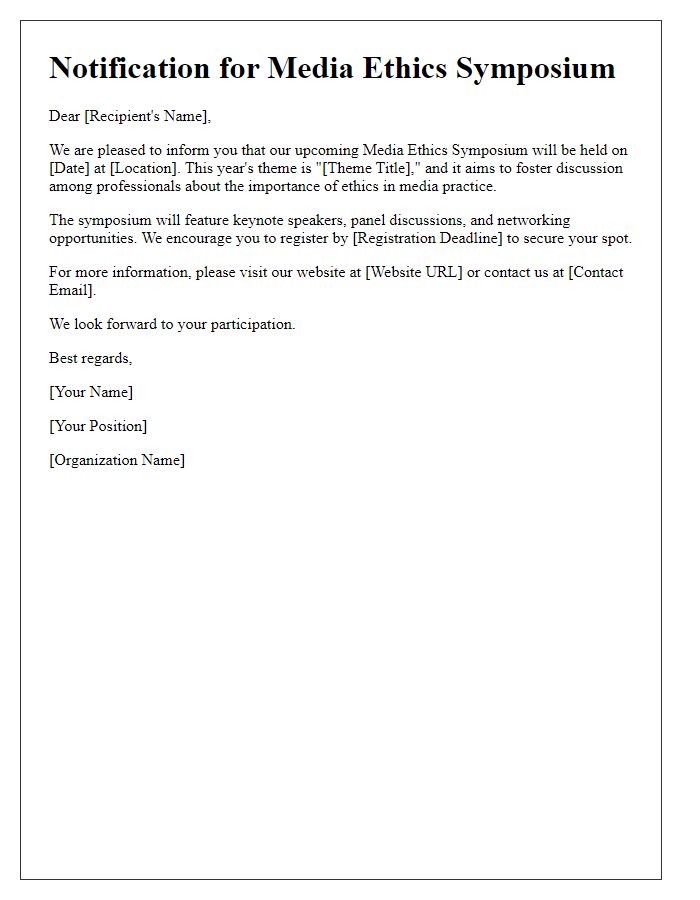
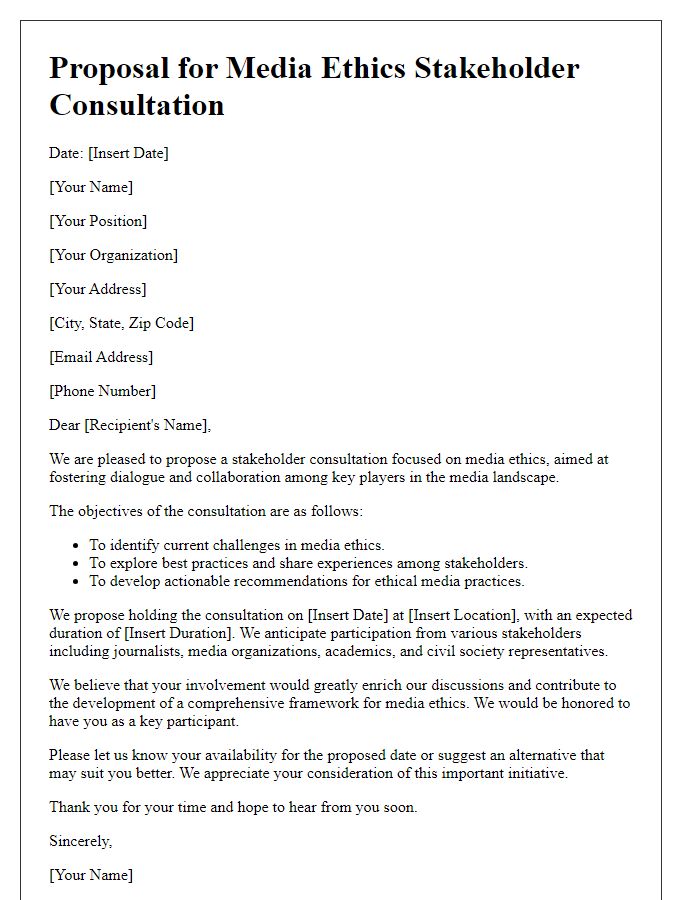

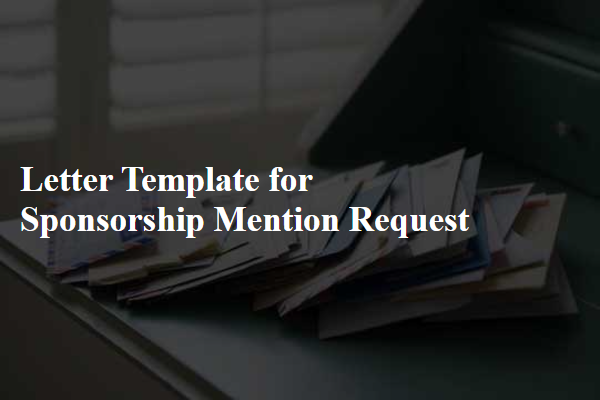
Comments